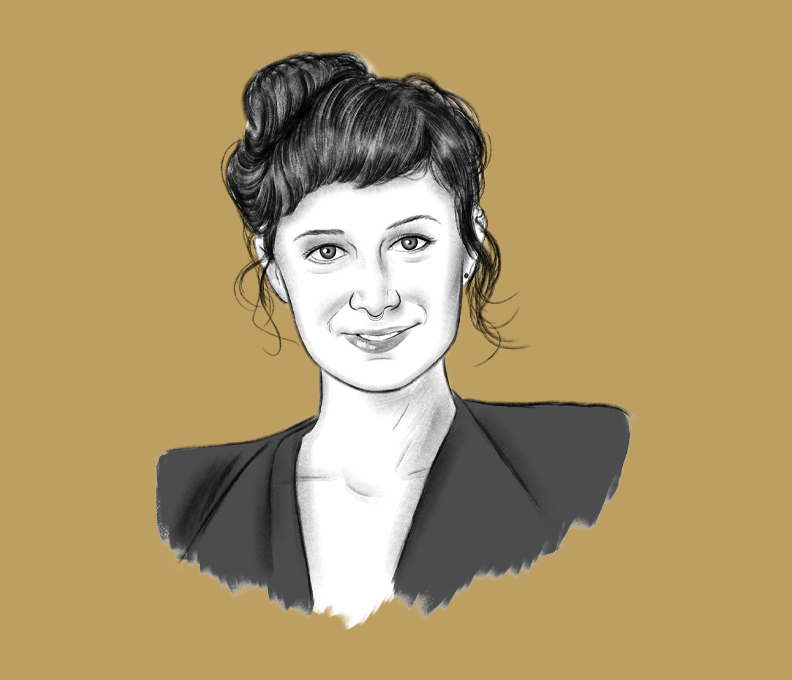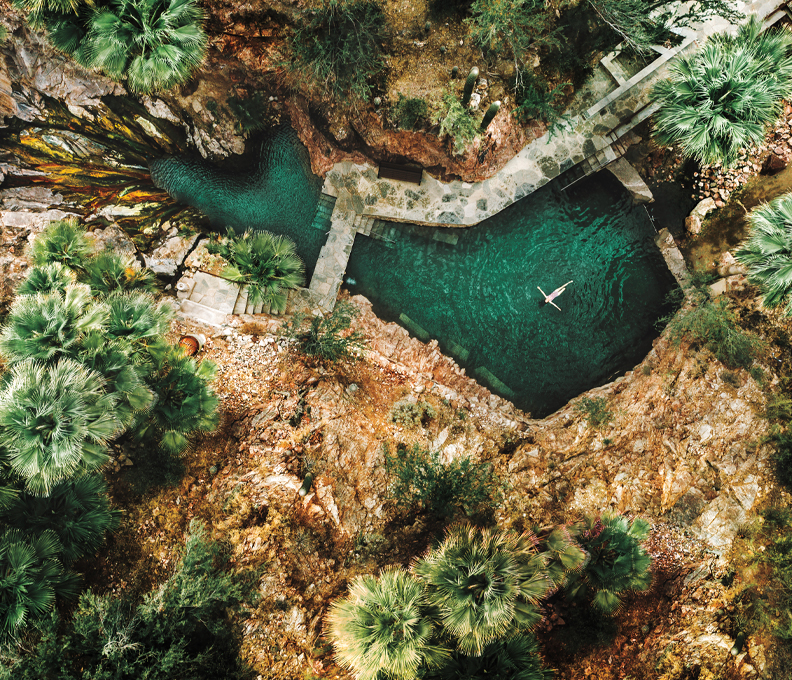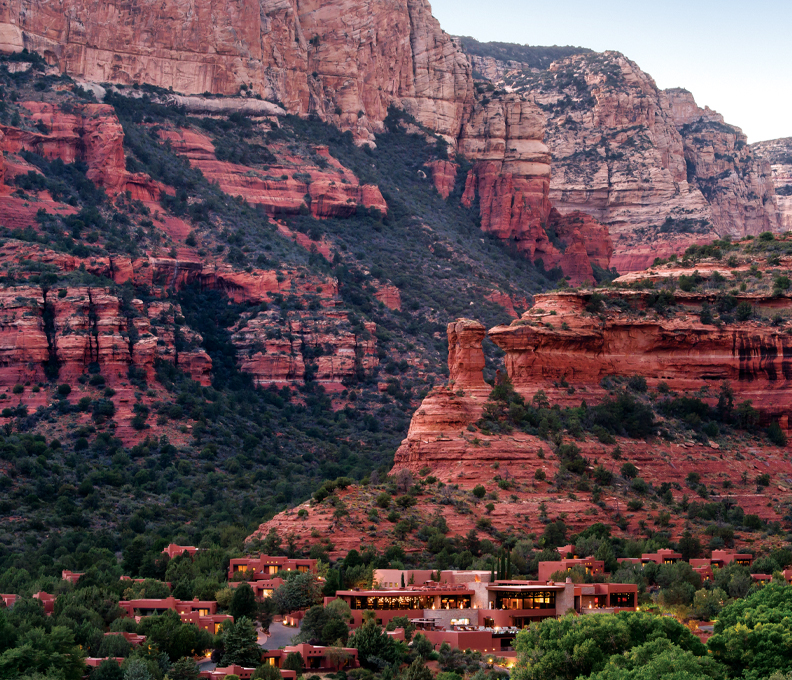Resorts Are Promoting the Wellness Benefits of Equine Therapy
Carmel Valley Ranch, Miraval Arizona, and other properties help guests reap the rewards of quality horse time
August 21, 2023
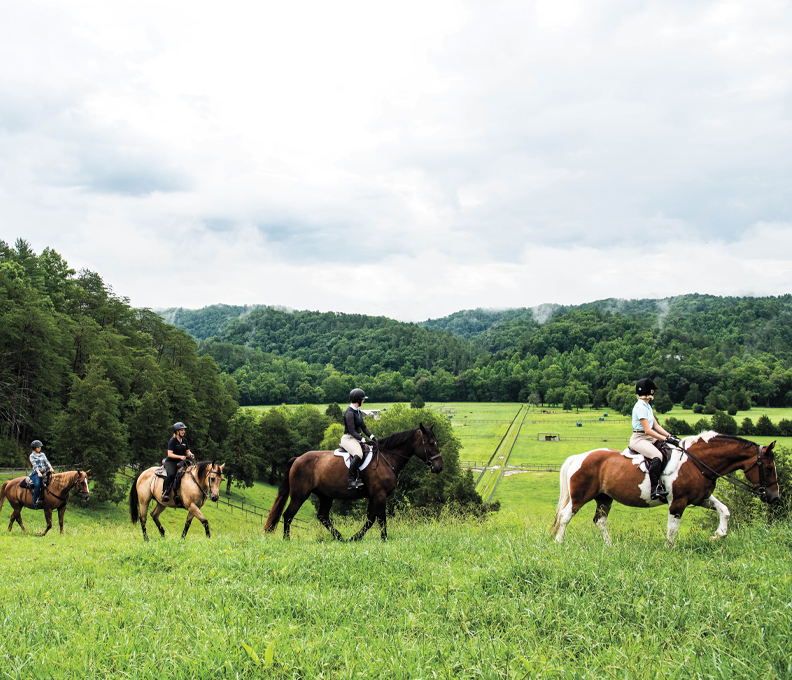
Riding at Blackberry Farm, Walland, Tennessee / Photo: Courtesy of Blackberry Farm
If you’re feeling anxious, it’s time to head to the stables. Research suggests that equine experiences, from connecting one-on-one with a horse to partaking in relay races or obstacle courses, can minimize anxiety, foster an awareness of the present and enhance overall well-being. “Horses are magnificent creatures. Their very presence can create a sense of awe and allow learned personal defenses to quickly slip away,” says Robert G. Magnelli, a clinical psychologist with two decades of experience in researching and sharing the therapeutic link between well-being and equestrian experiences.
It’s a connection that spans millennia. Historians believe the earliest domesticated horses date back to around 3500 BCE in present-day Southern Russia and Kazakhstan. The mammals have been essential to human life ever since, from war to transportation and agriculture. These days, equines play a role in wellness.
Take Carmel Valley Ranch, a luxury escape tucked among 500 acres of lavender fields, gardens and emerald valleys near California’s Big Sur. The destination’s wellness offerings run the gamut, from scenic yoga and Pilates to on-site hiking and sleep-enhancement rituals in the ranch’s Spa Aiyana. Carmel Valley Ranch’s equine-therapy program, created and run by Magnelli and his wife, Nancy, a psychiatric nurse, helps guests unlock even more enrichment via horses.
The duo built Carmel Valley Ranch’s equine program based on decades of research, with a focus on cultivating skills that guests can remember and practice back home. “Every session is unique to the individual and the responses of the horses to the individuals,” says Magnelli, noting participants don’t need previous experience with the mammals.
Carmel Valley Ranch Equine Experiences
Some of the ranch’s equine experiences include connecting with a horse through non-verbal communication, such as petting or eye contact, or doing so in a quintessentially California way—with a glass of local wine. Other offerings inspire problem-solving, such as obstacle courses, where participants identify dilemmas in their lives and then build a physical course to represent those roadblocks. “They lead a horse through the course and observe the horse’s response to the obstacles as well as the participant’s behavior and responses to the horse,” says Magnelli. This can help individuals or teams learn how to address issues via new management techniques. “Being outside in nature eliminates the normal cues and patterns for interaction that the home or office can elicit.” Relay races further the team-building potential, while an “equines and watercolor” afternoon inspires guests to “become aware of their internal emotional state upon arrival and again after interaction with the horses.”
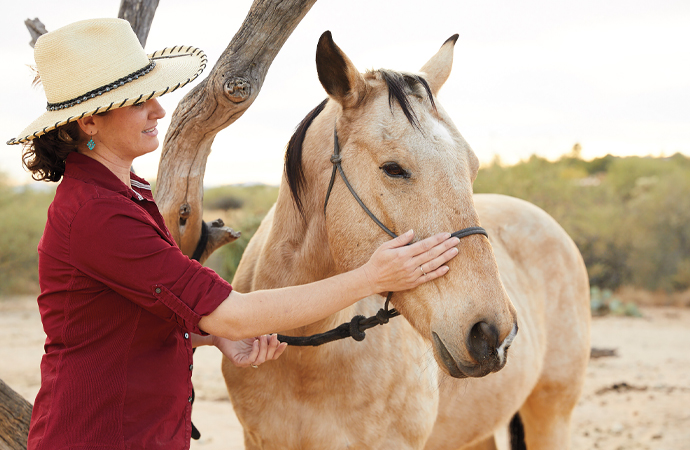
Equine encounters at Miraval Arizona, Tucson / Photo: Courtesy of Miraval Arizona Resort & Spa
All equine experiences integrate the horse’s infectious awareness and presence. “Horses live in the present and draw us into the present by our close proximity to them,” says Magnelli. “We aren’t ruminating on the past or worrying about the future. Our blood pressure goes down and our cortisol levels drop.”
Adding to that is the horse’s sheer size. “The horse’s electromagnetic field is five times greater than ours,” he says. “When we are in their field, our bodies begin to be influenced by their slower heartbeats and lower frequency waves and we begin to feel calm.”
Horses are also highly intuitive, which is another reason equine therapy can feel so powerful. The animals intuit a disconnect between a person’s outer behaviors and inner emotions. “If they don’t match, the horse feels unsafe,” Magnelli says. “This discomfort is reflected in the horse’s physical behavior and participants can learn they are not being their authentic selves.” From here, the guest experiments with different interactions to see how the horse responds.
“Once the individual can recognize their authentic behaviors, emotions and attitudes, they relax into their best self,” Magnelli says. “The horse is now willing to form a connection and a relationship.”
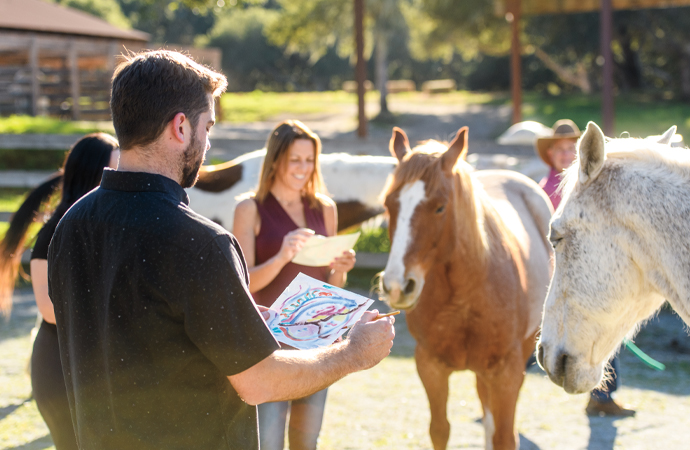
Carmel Valley Ranch, Carmel, California / Photo: Courtesy of Heather Durham Photography
While Carmel Valley Ranch runs one of the hospitality world’s most esteemed equine programs, it’s not the only one helping guests reap the rewards of quality horse time. In Tucson, Miraval Arizona hosts an equine experience where guests meet the property’s herd, while a Purple Sage Equine Meditation incorporates the calming power of both horses and purple sage herb, and an Unforgettable Canvas program blends equine therapy and art.
Blackberry Farm, a Relais & Chateaux property in the verdant forests of East Tennessee, runs a natural horsemanship experience to help guests communicate with the animals and learn about the human-horse relationship via guided encounters. Visitors can also saddle up for a scenic and relaxing saunter along the farm’s beloved backdrop: the Great Smoky Mountains.
